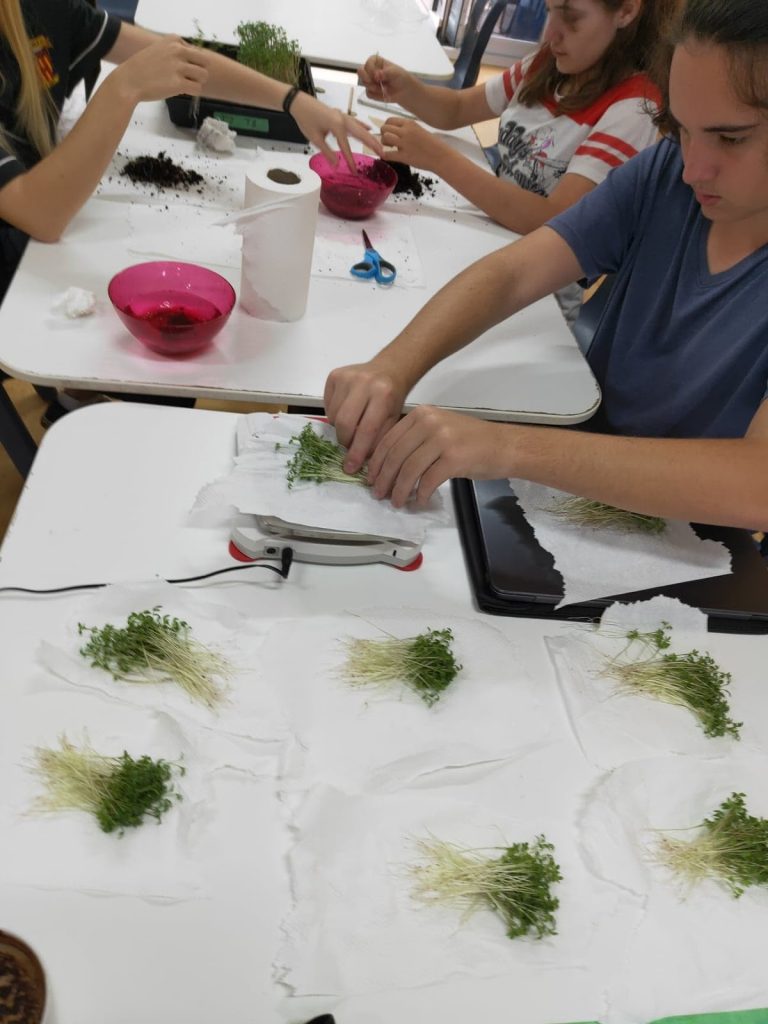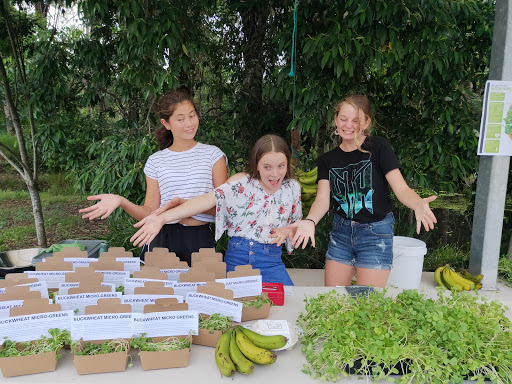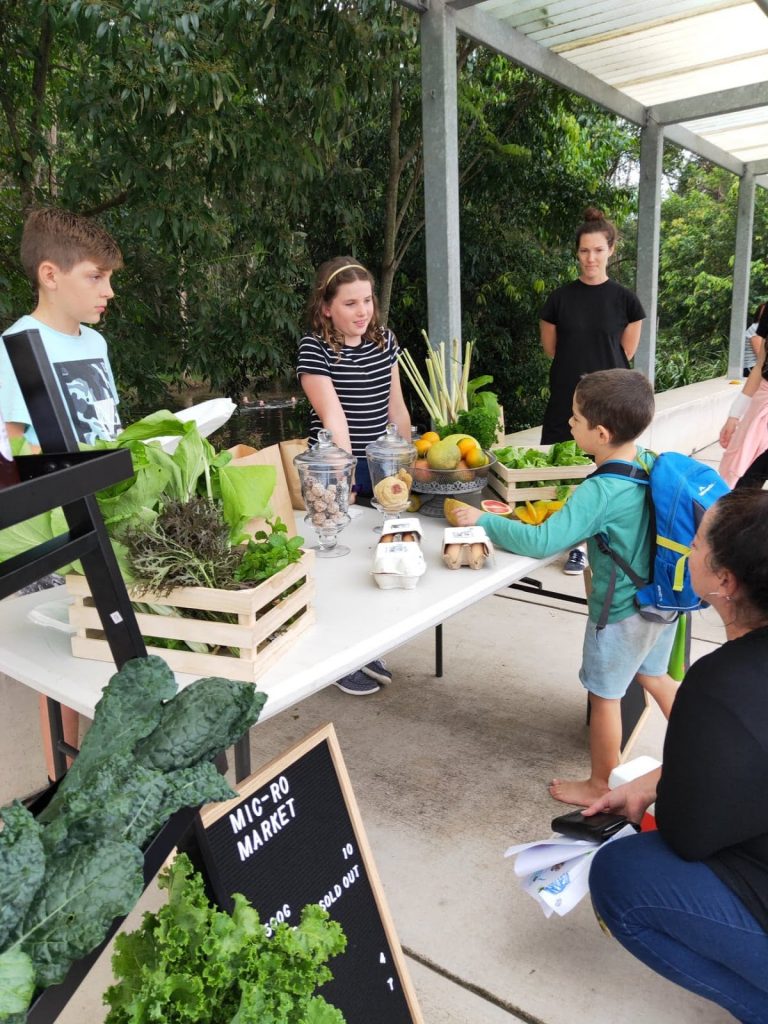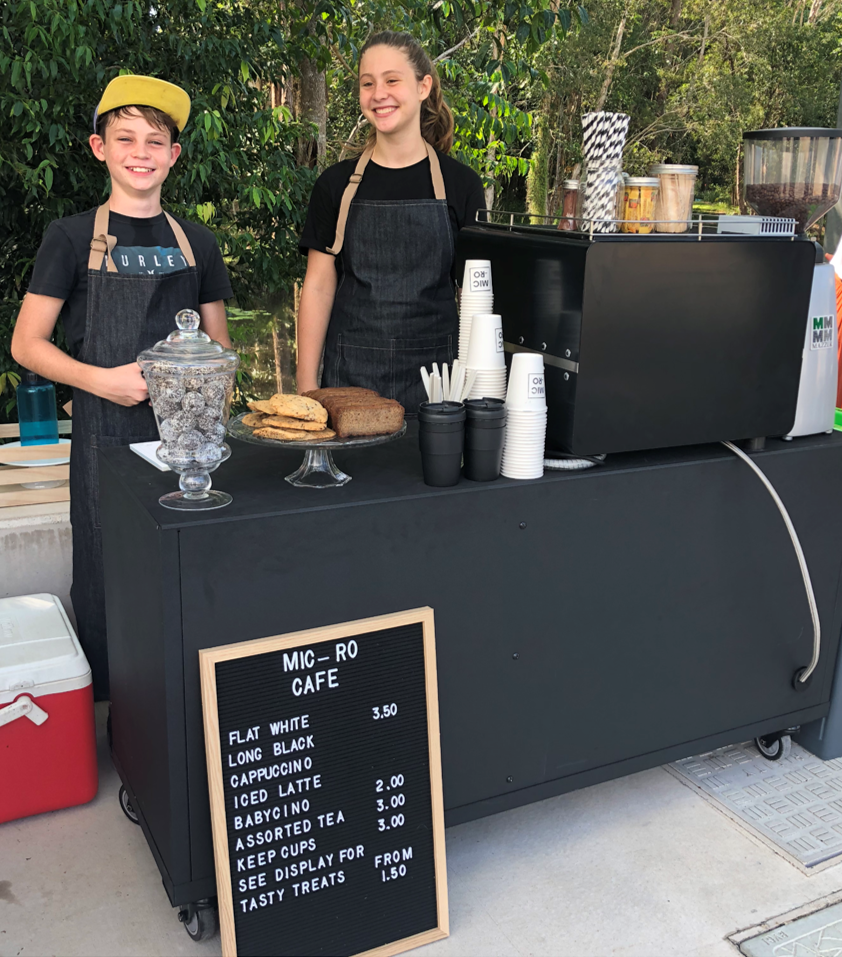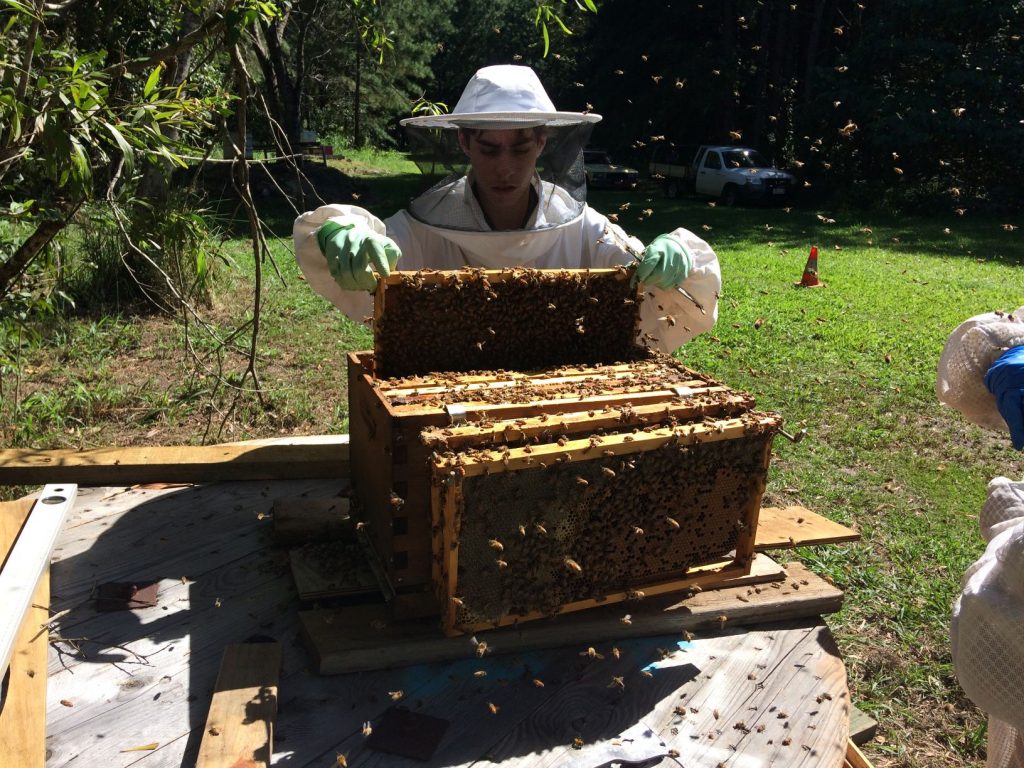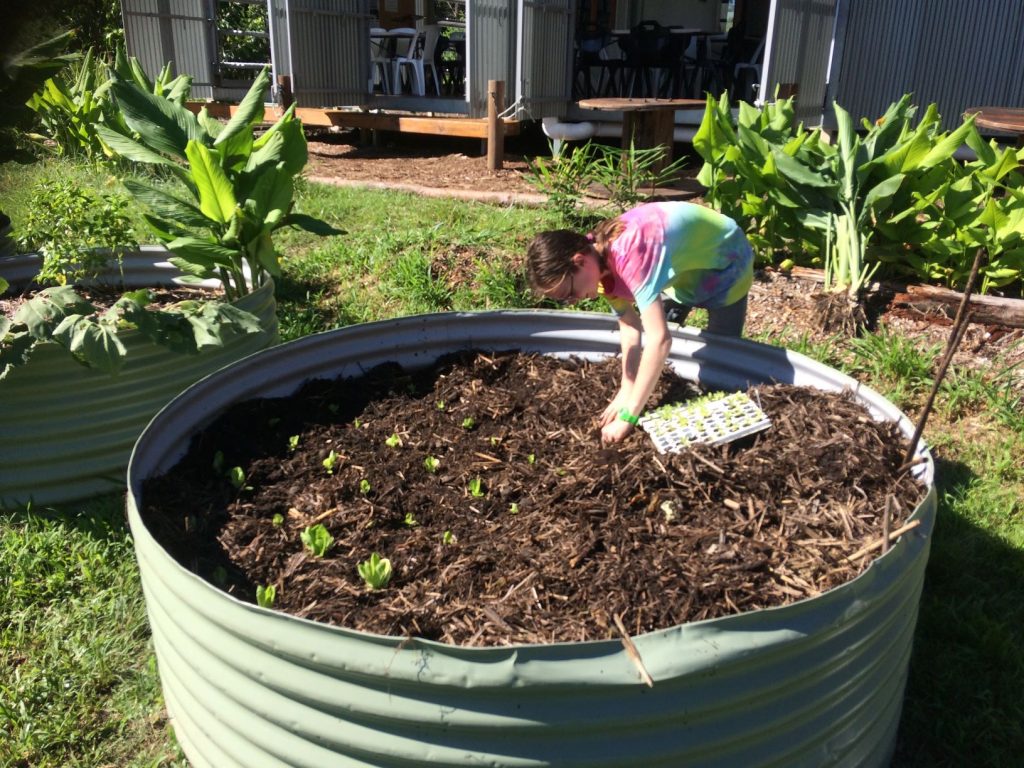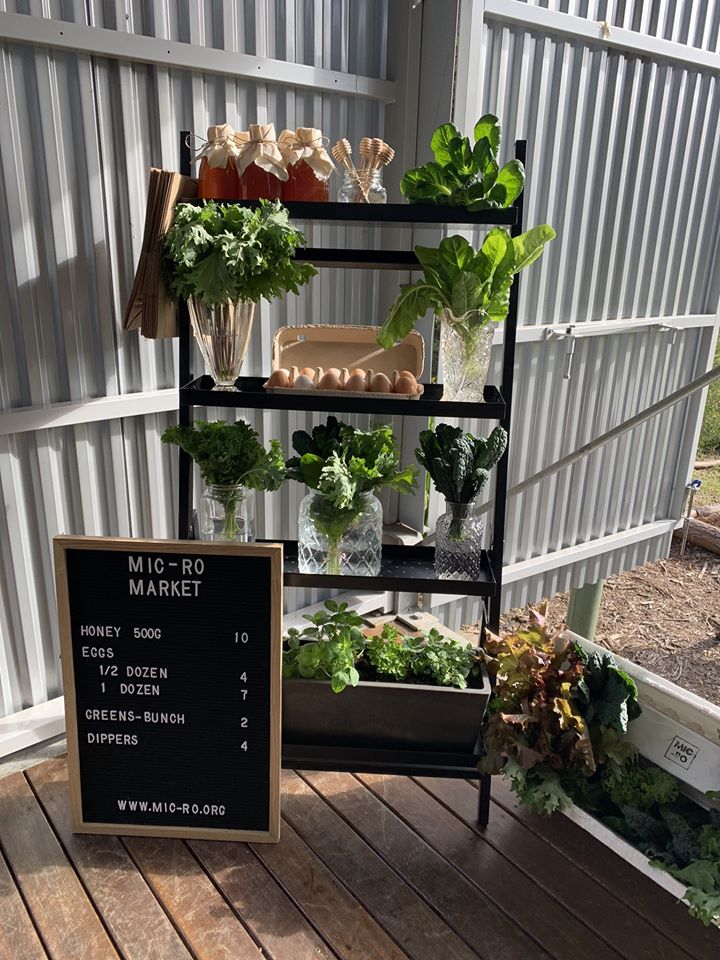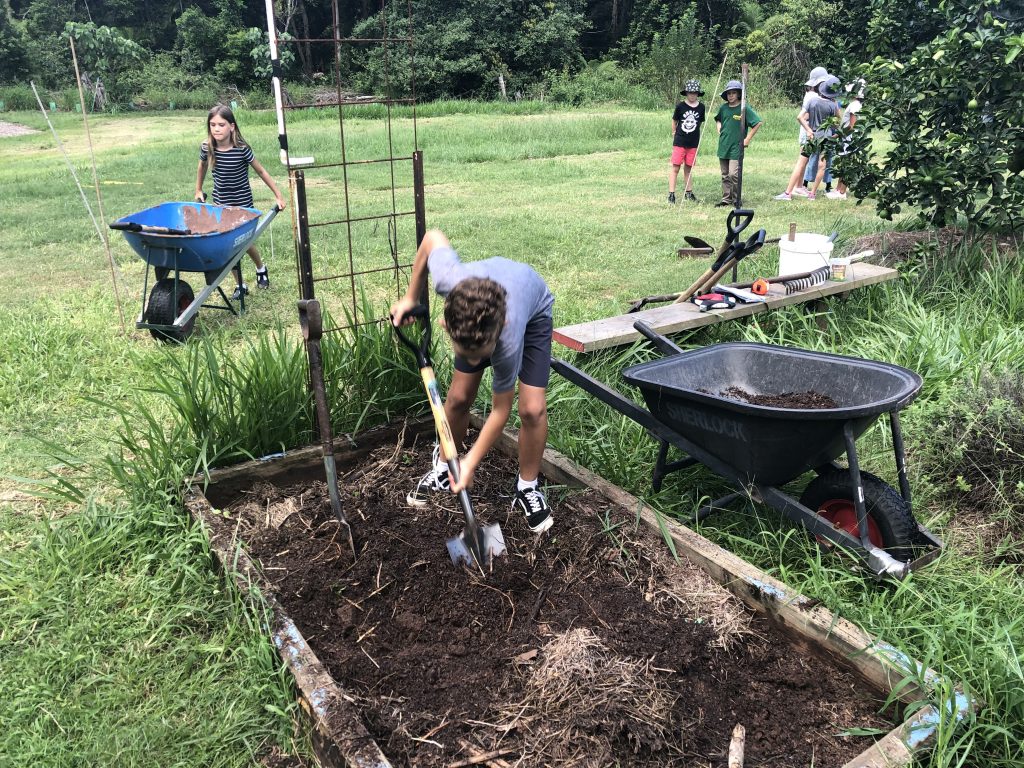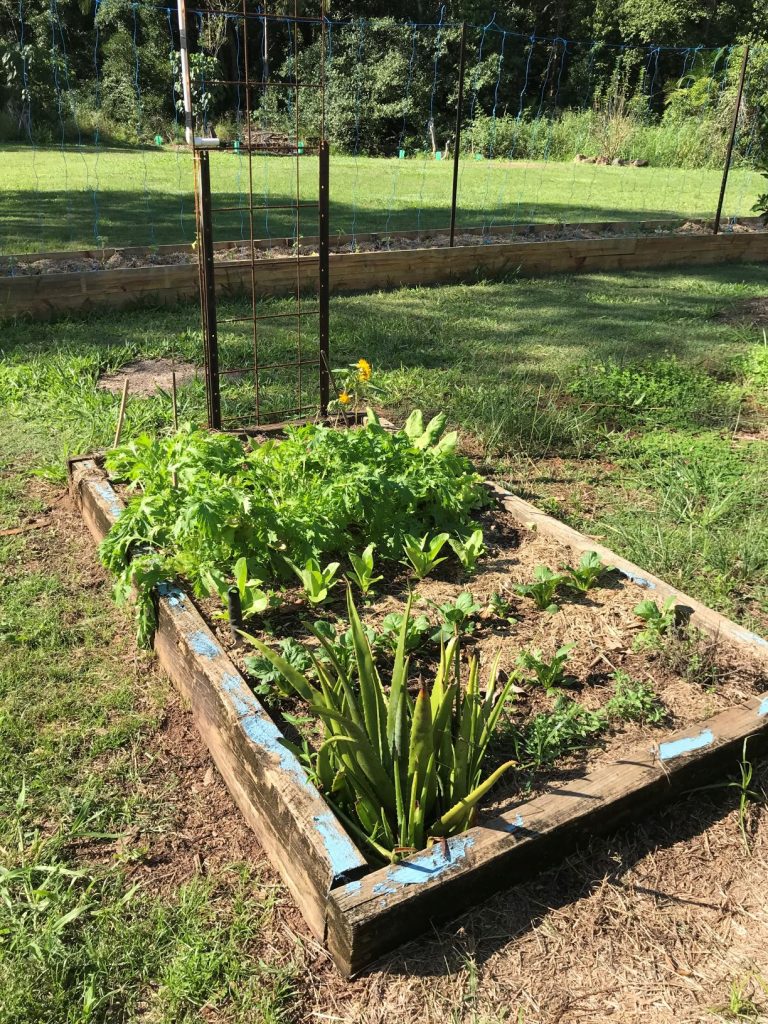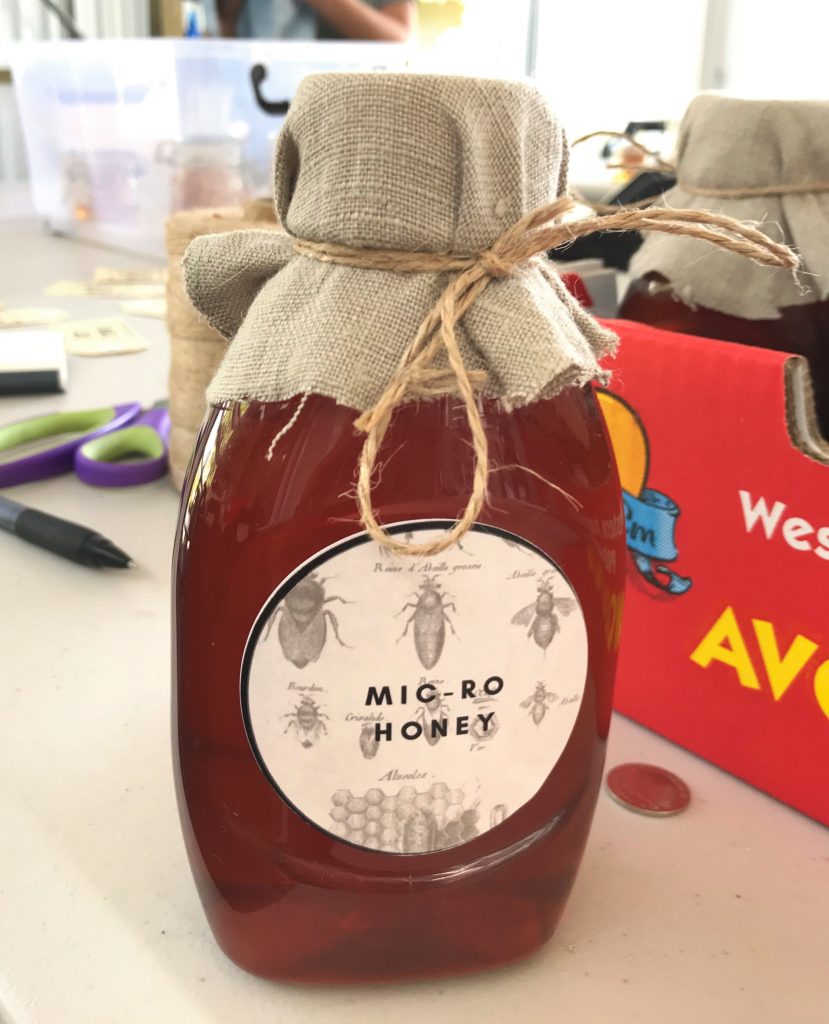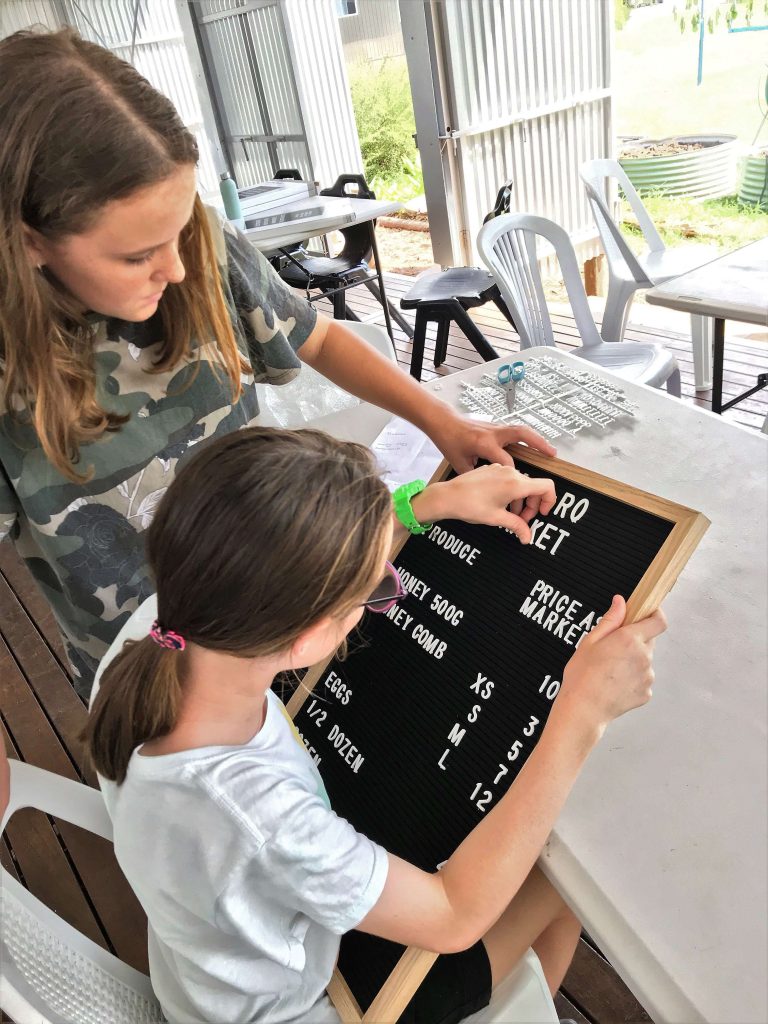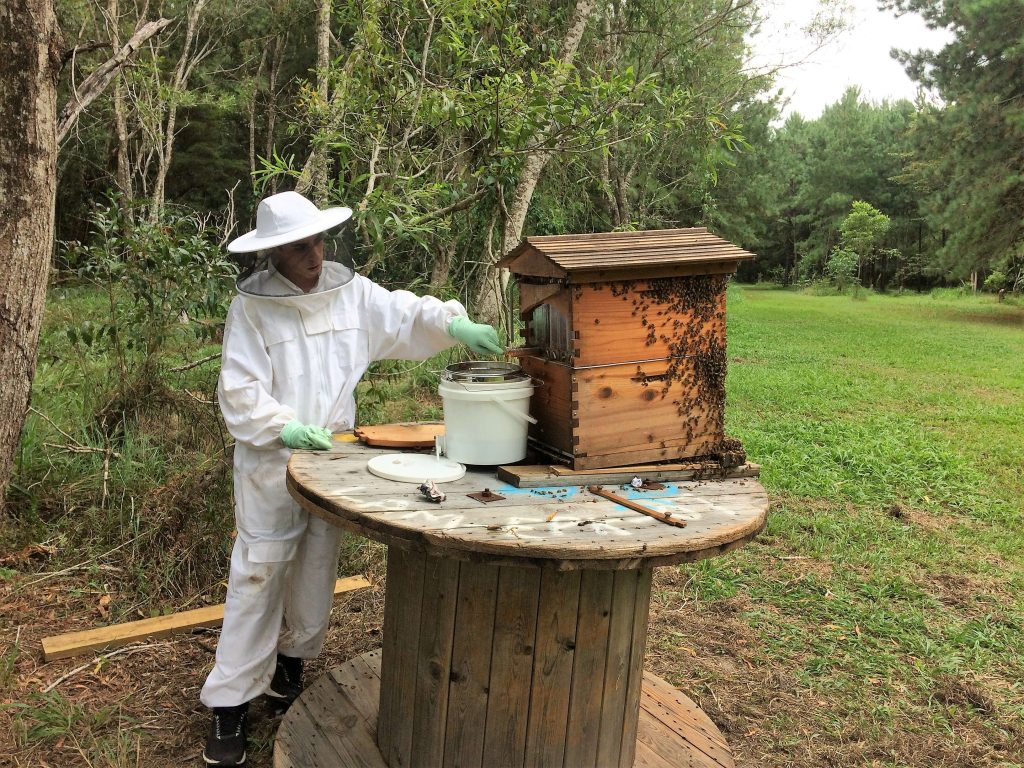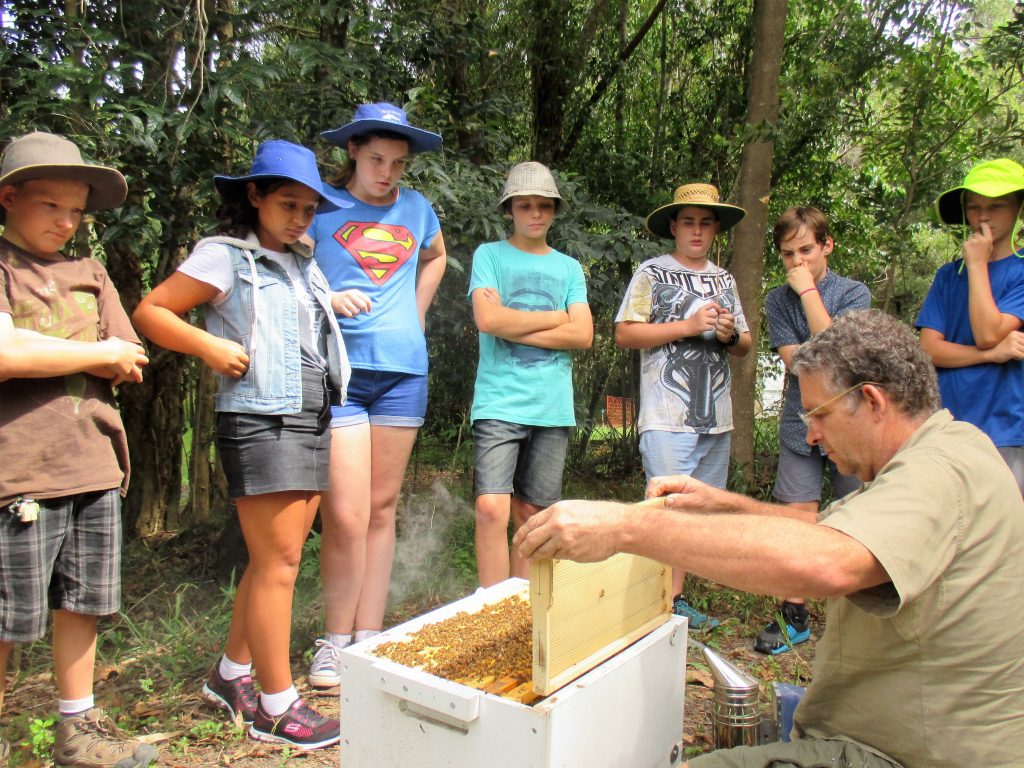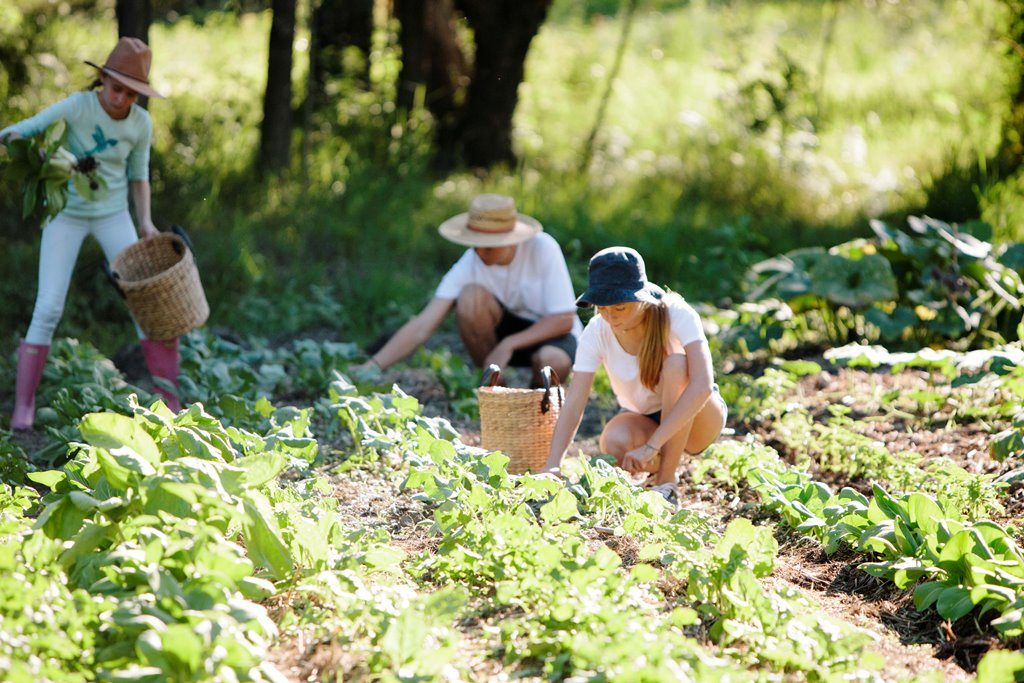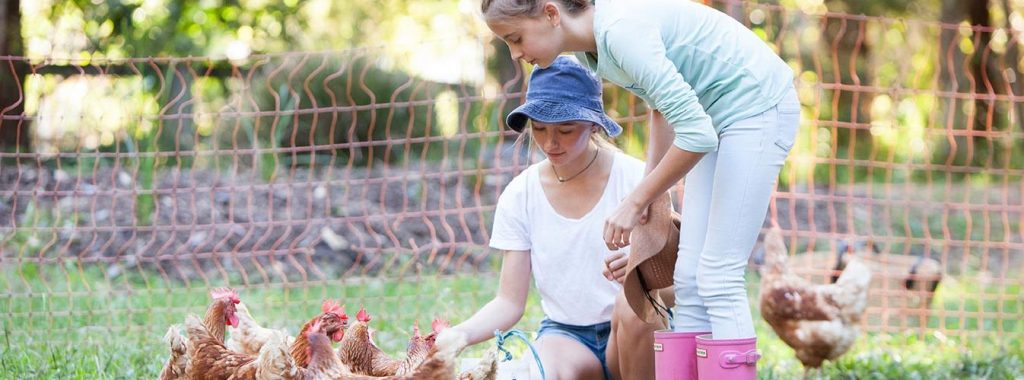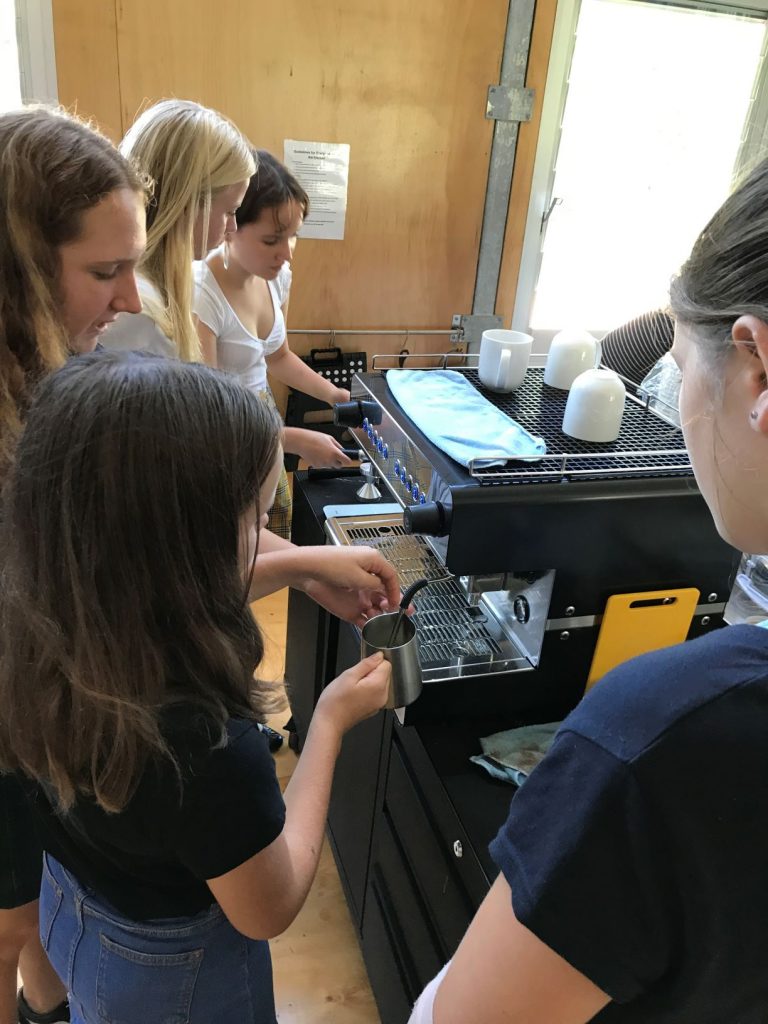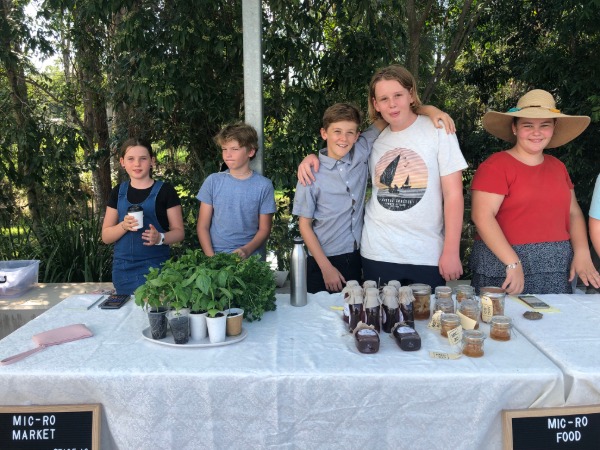Production and Exchange is a common thread across the entire Year 7 – 12 curriculum in the Adolescent Community, providing opportunities for meaningful work and real-life problem-solving.
In the Land and Community Program (Year 7 – Year 8) and the Local Integrated Studies Program (Year 9 – Year 10), production and exchange is realised through the development and implementation of micro-economies. In the Future Pathways Program (Year 11 – Year 12), production and exchange is realised through students operating their own small business through a social enterprise, start-up or even running a Montessori+ after school program to earn a part-time income.
Micro-economy provides students with practical, hands-on experience in managing a successful student-run business. Dr Montessori believed that the act of producing something and exchanging it for something else was an intrinsic part of being human which we can see throughout human history. That is why she envisioned adolescents participating in and managing small business endeavours in order to experience economic activity in their community.
“A shop or store could be established…and here the students could easily sell and bring the produce of their fields and garden, and other things that they have made.”
Maria Montessori – From Childhood to Adolescence
Students get hands-on experience with creating products, communicating with customers and developing a range of business skills. Production and Exchange looks different for each couplet in the Adolescent Community.
Land and Community Program (Year 7 – Year 8)
Young adolescents in the Land and Community Program get their first taste of business by acting as employees in the various micro-economies. Students focus on acquiring skills as they transition through the different roles within a range of small businesses.
Local Integrated Studies Program (Year 9 – Year 10)
Once adolescents transition into the Local Integrated Studies Program, they have the opportunity to experience a number of different businesses and will also begin to write resumes and apply to be managers of the different micro-economies. Adolescents in this couplet specialise in a role and act as leaders for their employees in Year 7 and Year 8.
Roles and responsibilities include:
- CEO– coordinating meetings, facilitating restorative discussions between managers and employees, writing articles and blog
- Secretary – recording meeting notes, coordinating branding and marketing
- Treasurer – balancing the books for the micro-economy and sharing weekly finance reports at community meetings
- Communications – writing articles and blog and interviewing for managers and employees
- Manager – coordinate goals and tasks, manage a group of 5-6 younger adolescents each week, ensure all paper work is complete and financial information provided to the Treasurer, and provide a Managers Update during each community meeting.
Micro-economies
Some examples of the micro-economies include:
- The Green Market (Farm)
- Choose Eggs! (Chickens)
- Food for Thought (Cafe)
- MIC-RO-Greens (Indoor Produce)
- Sushi Lunches
- The Hive (Bees)
- Food Escape (Healthy Lunches)
- Creative Creations (Art).
Future Pathways Program (Year 11 – Year 12)
When adolescents transition into the Future Pathways Program, they will be looking outward and preparing for real adult jobs. They can start their own business or gain part-time employment with support from their community here at MIC. The focus in this couplet is to become more economically independent.
For more on Micro-economy at MIC, check out these blog posts:
